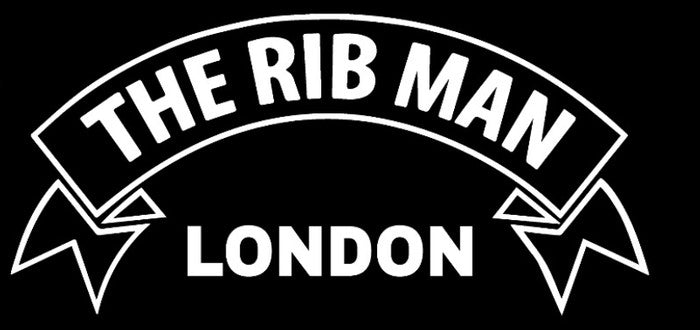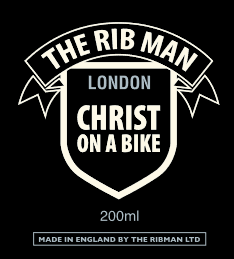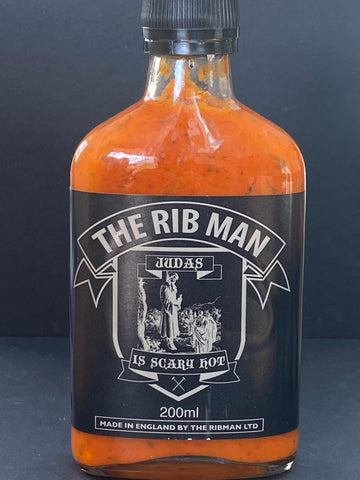AMAZONIAN BLAZE - SPICY BBQ SAUCE - ONLINE TODAY
£10.00
ONLINE FROM TODAY
Working together with The Colombian Department of Agriculture and The Nukak People I am so excited and beyond honoured to have been asked to create a Hot Sauce using the amazing "Capsicum Chinense Chillies" that grow wild and the Government allow the Nukak People to benefit 50% from the produce
50% of ALL SALES WILL GO TO HELP THE NUKAK PEOPLE
THIS SAUCE WILL BE A VERY LIMITED STOCK
ONLY 200 BOTTLES WILL BE MADE THIS BATCH
A LITTLE MORE ABOUT THE NUKAK PEOPLE AND WHY I WANT TO HELP
The hunter-gatherer Nukak in Colombia have only been in regular contact with people outside their tribe since the late 1980s. The Nukak’s rainforest was invaded and most Nukak were forced out of their territory to the outskirts of nearby towns. Malnutrition and diseases such as malaria have killed around half of their people, while many of the survivors now face sexual exploitation and drug addiction. The Nukak are fighting to go back home.
Traditionally, the Nukak live between the Guaviare and Inírida rivers in south-east Colombia, in small groups in the deep forest away from the rivers.
They used to be constantly on the move, spending just a few days in any one place and owning very few, easily portable possessions.
Nukak houses tend to be very light structures made of wood and palm-leaves, just enough to provide a roof to sling a hammock under. Since they were forced out of their forest, they do not have access to as many palm trees as they used to, and they depend on big plastic sheets to cover their roofs to protect themselves from the heavy Amazon rains. These plastic sheets break easily with the wind and they are expensive and very difficult to obtain.
Each family has its own hearth, used to keep warm, cook, and to burn certain plants to keep mosquitoes away.
The Nukak eat fish, game, turtles, fruit, vegetables, nuts, insects and honey.
The men hunt using blowguns, with darts tipped with curare, a poison made from up to five different plants.
The Nukak avoided almost all regular contact with outsiders until 1988 when a group of about forty turned up unexpectedly at a recently-founded colonists’ town called Calamar.
Although they were on what they considered to be their ancestral territory, their sudden arrival at Calamar created a sensation in the Colombian and international press.
But the consequences of regular contact were appalling. In the following years, partly as a result of loggers and coca growers encroaching on their land, more and more Nukak came into contact with outsiders and many were devastated by diseases such as malaria and flu.
In total, more than half of the entire tribe died between the late 80s and early 90s, mostly from flu.
In 1993 thanks to campaigning in Colombia by ONIC (National Indigenous Organization of Colombia) and others, amplified internationally by Survival, the Nukak Reserve was created, and then expanded in 1997 to encompass almost 1 million hectares of forest.
In 2009, the Nukak were declared one of at least 32 tribes in Colombia believed to be at ‘imminent risk of extinction’, according to the country’s national indigenous peoples’ organization, ONIC.
Today their population has slightly recovered, although the population is still lower than 1,000, but their lands are being violently occupied by various armed groups; by outsiders using the Nukak’s forest to grow coca for the cocaine trade; and by cattle ranchers who have deforested large areas. As if that were not enough, much of their territory is littered with anti-personnel mines.
As a result, many Nukak were forced to flee their homes and seek refuge on the outskirts of a town called San Jose del Guaviare. Other Nukak were forced to leave at gun-point.
In 2006 the government tried to move the displaced Nukak back to the rainforest, but the chosen location, only fourteen kilometers from San Jose, was far too small.
After a flu epidemic and the tragic suicide of one of their spokesmen, Mao-be, the Nukak abandoned the area and went back to San Jose.
The Nukak are now confined to around 20 settlements in Guaviare Department which lie outside their ancestral territory. Although they were prioritized in Colombia's recent Peace Agreement negotiations, the gravity of their situation has not improved. Largely ignored by the authorities, there is no updated census of their population, and they lack access to basic healthcare and resources to sustain themselves. Their precarious state and recent contact with mainstream society make them extremely vulnerable to common diseases like flu and measles to which they have no immunity. The young Nukak are particularly exposed to alcohol and drug abuse, sexual exploitation, and recruitment as forced labor in the illegal coca plantations.
The Nukak are desperate to return home, so they can thrive once more as self-sufficient people - but, given the dangers, the authorities need to take urgent action to ensure that Colombian law is upheld and the Nukak can live safely on their land.
















Share this item: